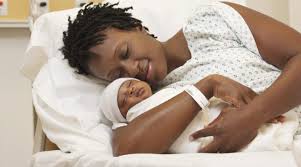Early in the novel coronavirus pandemic, encouraging data suggested that infants born to mothers with COVID-19 did not acquire the virus before birth, a process called vertical transmission. However, three new reports released in The Journal of the American Medical Association, unfortunately, suggest the opposite may be true.
Vertical transmission, or the spread of infectious disease from mother to child, initially seemed unlikely based on initial COVID-19 case reports as well as historical data from the outbreaks of MERS and SARS, close cousins of the novel coronavirus. To date, data has been published on 19 infants born to mothers with COVID-19, all of whom subsequently tested negative for the virus.
However, a study released from Wuhan’s Children’s Hospital evaluated 33 newborns born to mothers with COVID-19 pneumonia, finding that three of these infants (9%) fell ill. The physicians involved noted that strict infection control procedures were followed during delivery, suggesting that the virus didn’t infect the infants during or after delivery, and instead likely came from the mother while they were still in the womb.
Fortunately, all three infants pulled through. Two of the infants were born full-term via C-section and developed fever, lethargy and pneumonia on chest radiographs. The third infant required more intensive care but was also significantly premature - born at only 31 weeks gestation or six weeks early.
The premature infant also was found to have sepsis, or a blood infection caused by a bacteria. With this, along with the complexity that inherently goes along with prematurity, it is unclear how significantly COVID-19 affected the infant’s health. Fortunately, respiratory support and antibiotics led to improvement and recovery.
Antibodies in newborns raise further concern
The two additional research letters released on March 26 report a different sign of potential mother-to-child transmission. In a bit of a medical mystery, researchers describe case studies of three infants that did not have symptoms nor test positive for active COVID-19 infections, but did have specific antibodies, or immune proteins, called IgM.
What to know about the novel coronavirus:
- How it started and how to protect yourself: coronavirus explained
- What to do if you have symptoms: coronavirus symptoms
- Tracking the spread in the US and worldwide: coronavirus map
IgM is usually produced in response to a pathogen three to seven days after infection. It is not usually transferred from mother to fetus because of its larger structure, which is too big to cross the placenta.
Researchers suggest that if coronavirus-specific IgM is present at birth, it could either indicate that the infant had produced its own IgM in response to the virus or the mother’s IgM was transferred to the baby through a damaged placenta.
The first of these case reports reviewed the laboratory results of six pregnant women with mild COVID-19 who were admitted to Zhongnan Hospital of Wuhan University. All gave birth via C-section using multiple infection control measures, including isolation of their infants immediately following delivery. Two of these six infants had IgM present, but none had symptoms and were repeatedly negative when tested for the virus.
A separate report from Renmin Hospital of Wuhan University had similar findings but focused on only one infant. This mother was sicker than the others and was treated with antiviral, antibiotic, corticosteroid and oxygen therapies. She gave birth via C-section nearly one month after contracting the virus and her infant, too, was positive for coronavirus-specific IgM.
While these findings are difficult to interpret given their paucity of accompanying clinical details, these isolated case studies are still worthy of special attention.
Scientists and researchers are still studying these cases to see if they offer any clues about how to best protect the health of infants and mothers with COVID-19 infection. Until we have more data, pregnant women and women hoping to soon become pregnant should continue to seek guidance and medical care from health professionals.
Latest Stories
-
EC blames re-collation of disputed results on widespread lawlessness by party supporters
2 minutes -
Top 20 Ghanaian songs released in 2024
23 minutes -
Beating Messi’s Inter Miami to MLS Cup feels amazing – Joseph Paintsil
37 minutes -
NDC administration will reverse all ‘last-minute’ gov’t employee promotions – Asiedu Nketiah
48 minutes -
Kudus sights ‘authority and kingship’ for elephant stool celebration
49 minutes -
We’ll embrace cutting-edge technologies to address emerging healthcare needs – Prof. Antwi-Kusi
1 hour -
Nana Aba Anamoah, Cwesi Oteng special guests for Philip Nai and Friends’ charity event
1 hour -
Environmental protection officers receive training on how to tackle climate change
2 hours -
CLOGSAG vows to resist partisan appointments in Civil, Local Government Service
3 hours -
Peasant Farmers Association welcomes Mahama’s move to rename Agric Ministry
3 hours -
NDC grateful to chiefs, people of Bono Region -Asiedu Nketia
3 hours -
Ban on smoking in public: FDA engages food service establishments on compliance
3 hours -
Mahama’s administration to consider opening Ghana’s Mission in Budapest
3 hours -
GEPA commits to building robust systems that empower MSMEs
3 hours -
Twifo Atti-Morkwa poultry farmers in distress due to high cost of feed
3 hours

